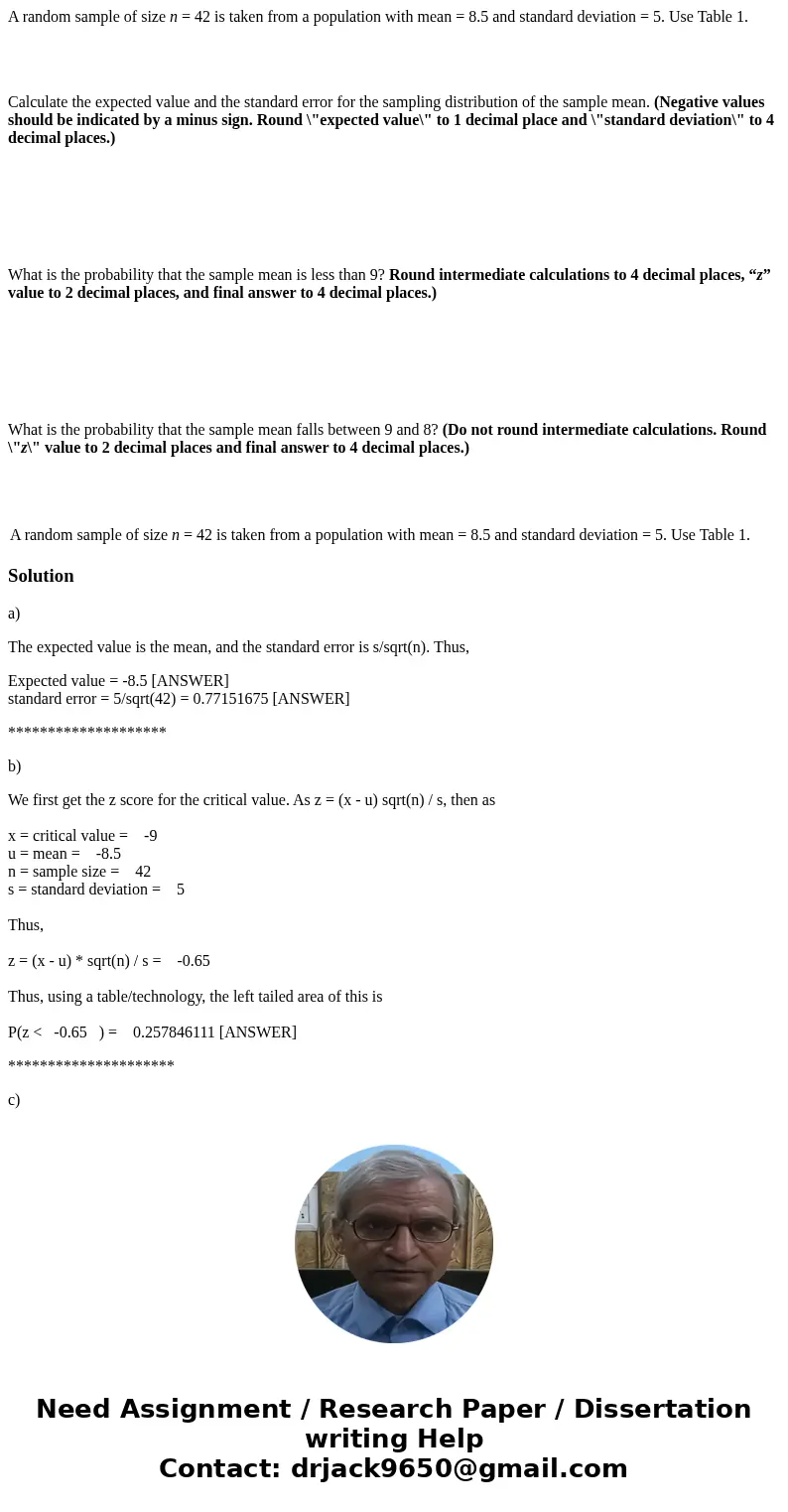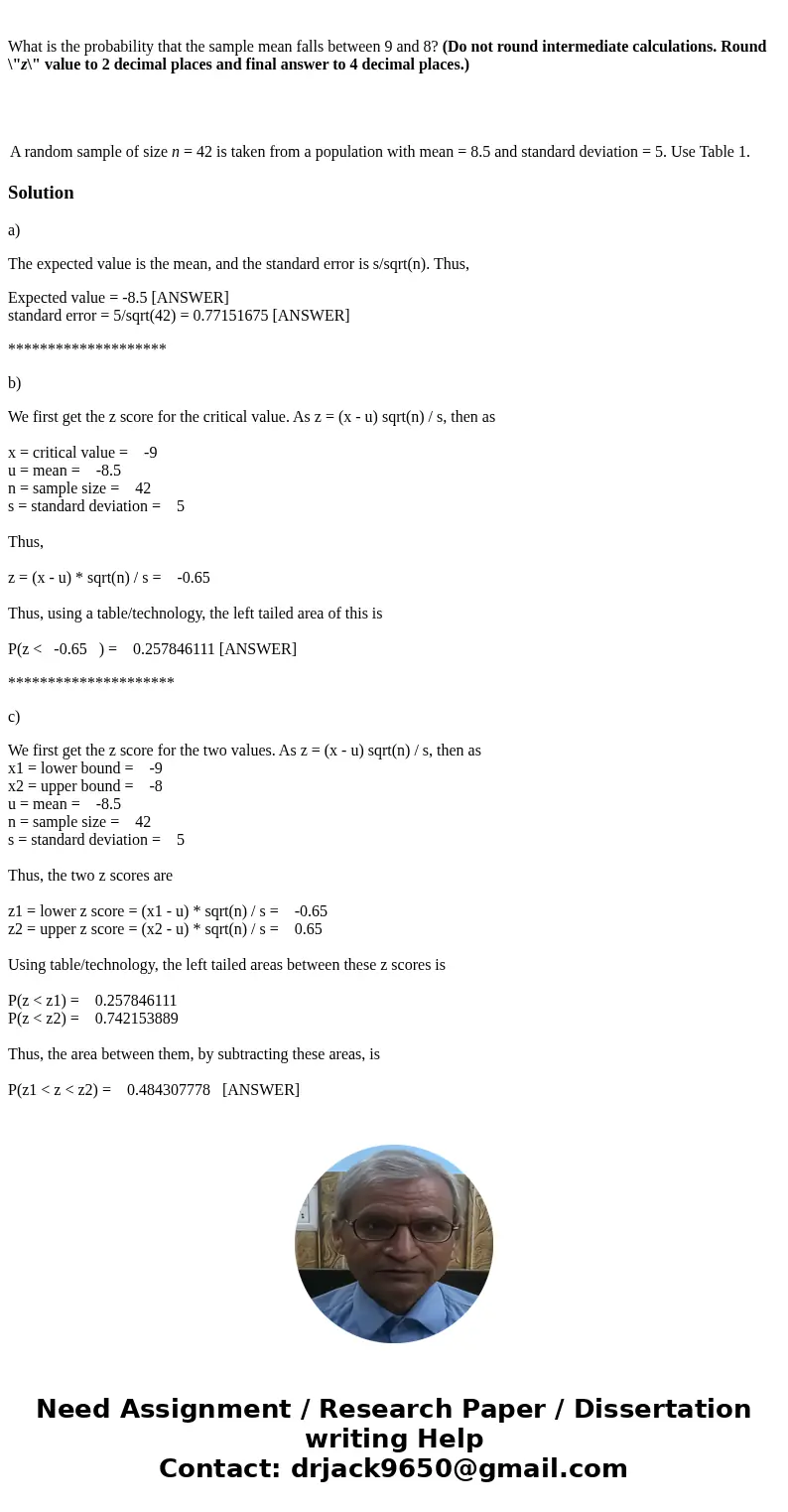A random sample of size n 42 is taken from a population wit
A random sample of size n = 42 is taken from a population with mean = 8.5 and standard deviation = 5. Use Table 1.
Calculate the expected value and the standard error for the sampling distribution of the sample mean. (Negative values should be indicated by a minus sign. Round \"expected value\" to 1 decimal place and \"standard deviation\" to 4 decimal places.)
What is the probability that the sample mean is less than 9? Round intermediate calculations to 4 decimal places, “z” value to 2 decimal places, and final answer to 4 decimal places.)
What is the probability that the sample mean falls between 9 and 8? (Do not round intermediate calculations. Round \"z\" value to 2 decimal places and final answer to 4 decimal places.)
| A random sample of size n = 42 is taken from a population with mean = 8.5 and standard deviation = 5. Use Table 1. |
Solution
a)
The expected value is the mean, and the standard error is s/sqrt(n). Thus,
Expected value = -8.5 [ANSWER]
standard error = 5/sqrt(42) = 0.77151675 [ANSWER]
********************
b)
We first get the z score for the critical value. As z = (x - u) sqrt(n) / s, then as
x = critical value = -9
u = mean = -8.5
n = sample size = 42
s = standard deviation = 5
Thus,
z = (x - u) * sqrt(n) / s = -0.65
Thus, using a table/technology, the left tailed area of this is
P(z < -0.65 ) = 0.257846111 [ANSWER]
*********************
c)
We first get the z score for the two values. As z = (x - u) sqrt(n) / s, then as
x1 = lower bound = -9
x2 = upper bound = -8
u = mean = -8.5
n = sample size = 42
s = standard deviation = 5
Thus, the two z scores are
z1 = lower z score = (x1 - u) * sqrt(n) / s = -0.65
z2 = upper z score = (x2 - u) * sqrt(n) / s = 0.65
Using table/technology, the left tailed areas between these z scores is
P(z < z1) = 0.257846111
P(z < z2) = 0.742153889
Thus, the area between them, by subtracting these areas, is
P(z1 < z < z2) = 0.484307778 [ANSWER]


 Homework Sourse
Homework Sourse